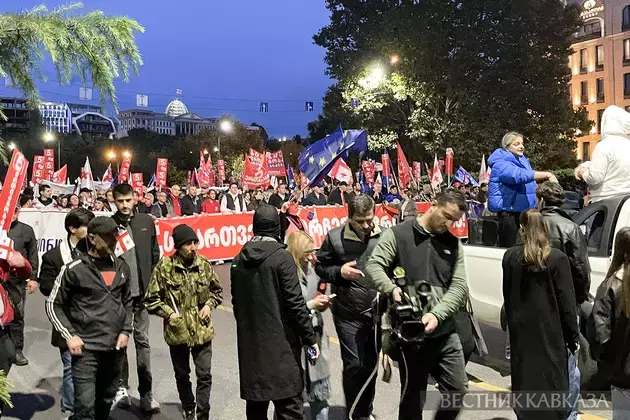Another protest action took place on Rustaveli Avenue in Tbilisi last night. There are detainees, the media reported.
According to eyewitnesses, this rally was the largest in recent days, with thousands expressing dissatisfaction with Prime Minister Irakli Kobakhidze's statement about suspending the dialogue on EU integration.
The protesters threw stones at the parliament building, broke windows and used pyrotechnics, which caused a fire in the building. The entrance gates of the parliament were also damaged.
In response, the Interior Ministry and special forces began detaining protesters. Tear gas and water cannons were used to disperse the protesters. Some law enforcement officers surrounded the parliament building and its entrance and began to push the protesters back along Rustaveli Avenue.
Those who were driven away from the parliament building by the special forces started erecting barricades on Rustaveli Avenue using all available means for this — city benches and trash bins.
By 06:00 (05:00 Moscow time), the protesters remained on the central avenue and did not intend to disperse. It is reported that some of them began drinking alcoholic beverages and vandalizing nearby buildings by drawing graffiti. The special forces continued to disperse the rally.
Later, the protesters moved along Rustaveli and stood near the building of Tbilisi State University, where they blocked the roadway. As of 08:00 (07:00 Moscow time), a significant number of protesters remained in front of the university.
What caused the protests in Georgia?
Mass protests erupted after the parliamentary elections held on October 26. According to their results, the ruling party Georgian Dream won the majority of votes. This fact displeased the opposition coalitions and their supporters, who refused to recognize the election results.
The second wave of protests began after Prime Minister Irakli Kobakhidze announced that the process of Georgia's accession to the European Union would be suspended until 2028. Later, he noted that he did not mean a complete rejection of European integration, but only the removal of the issue from the current agenda.






